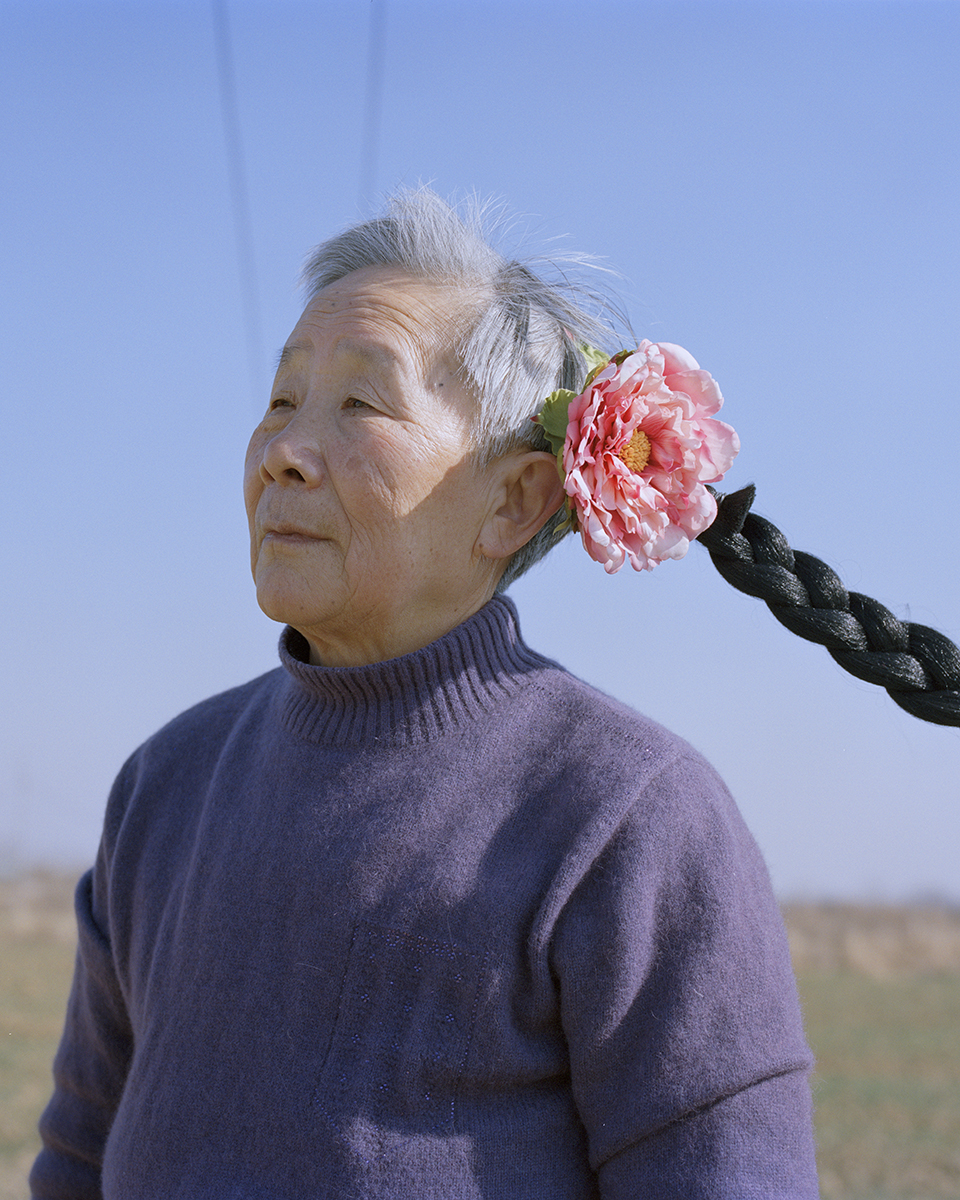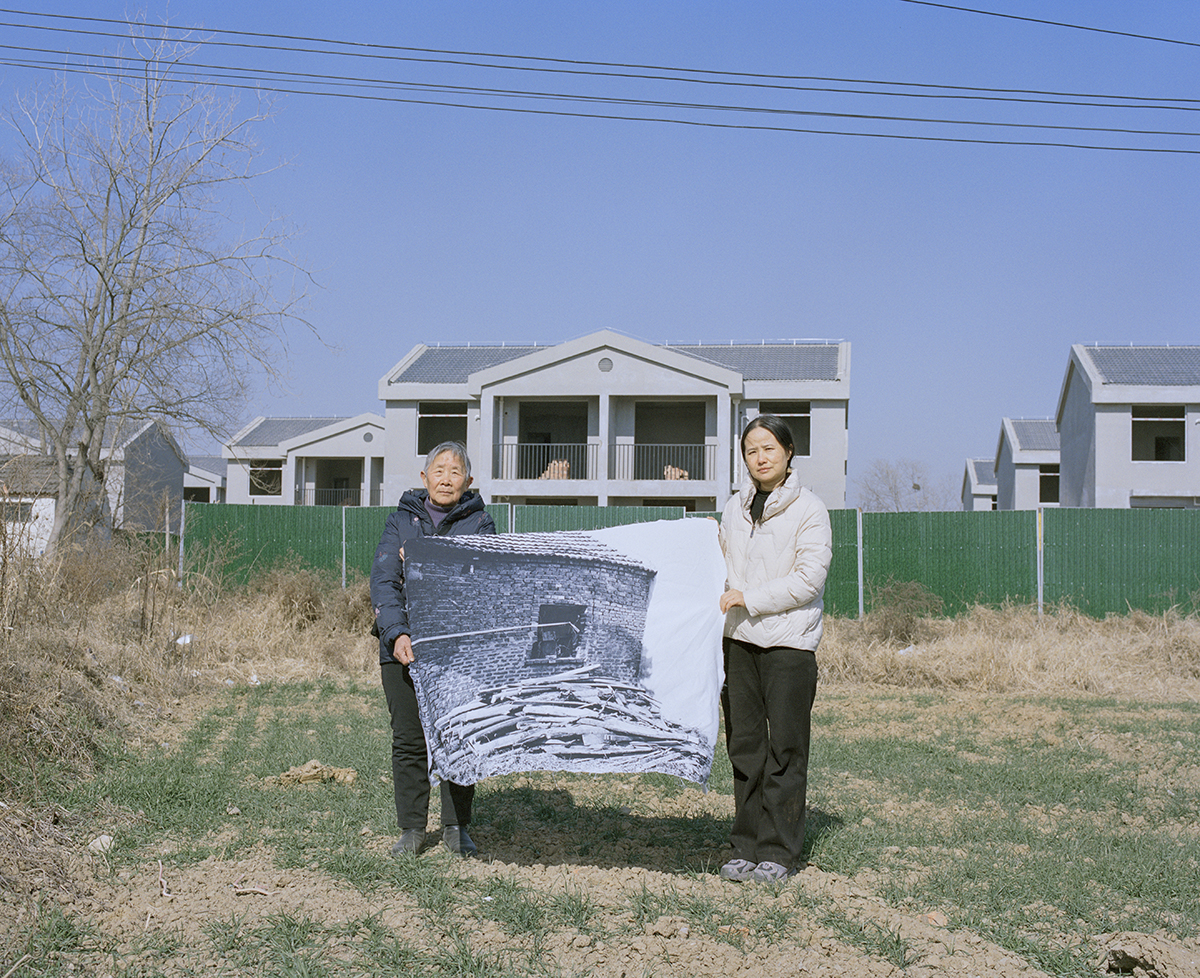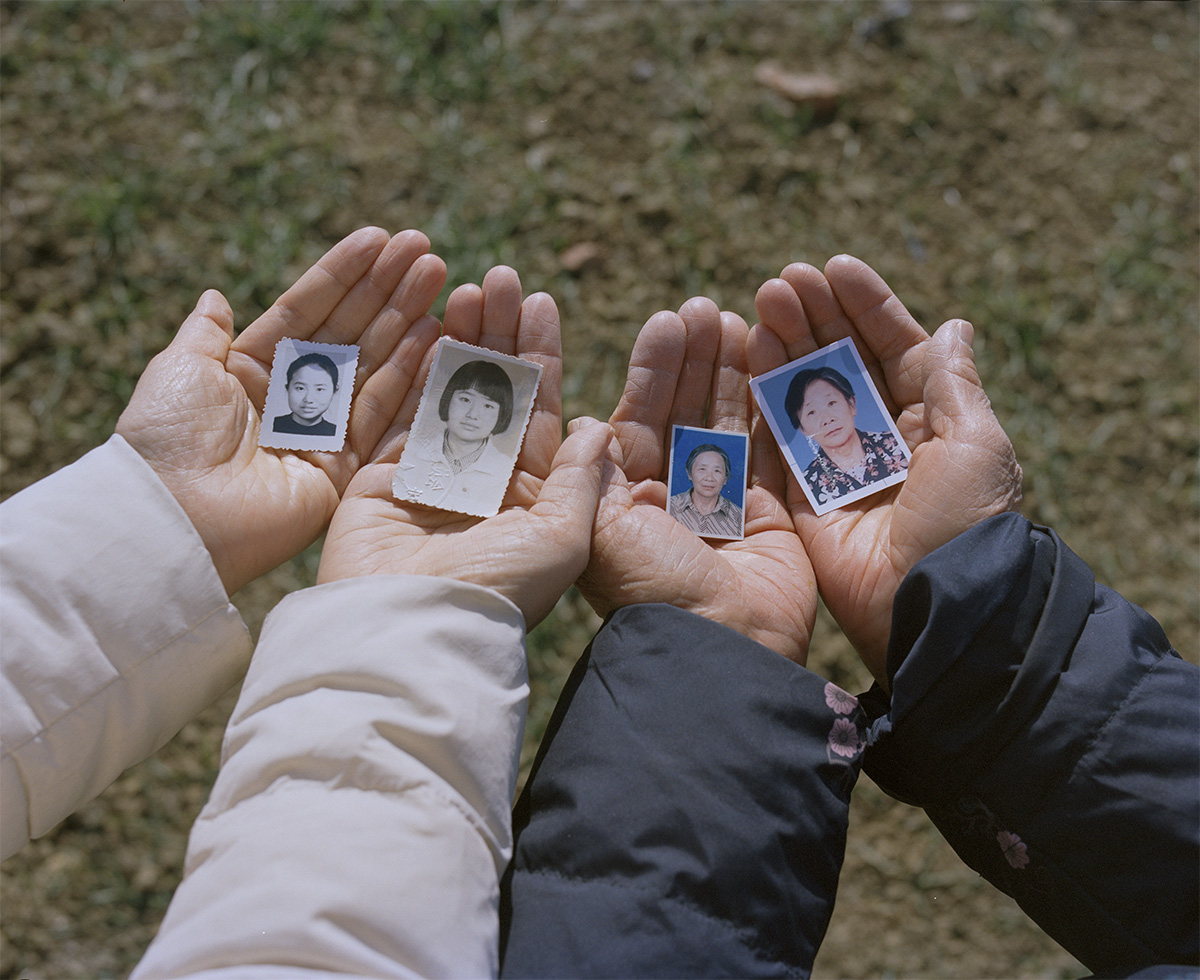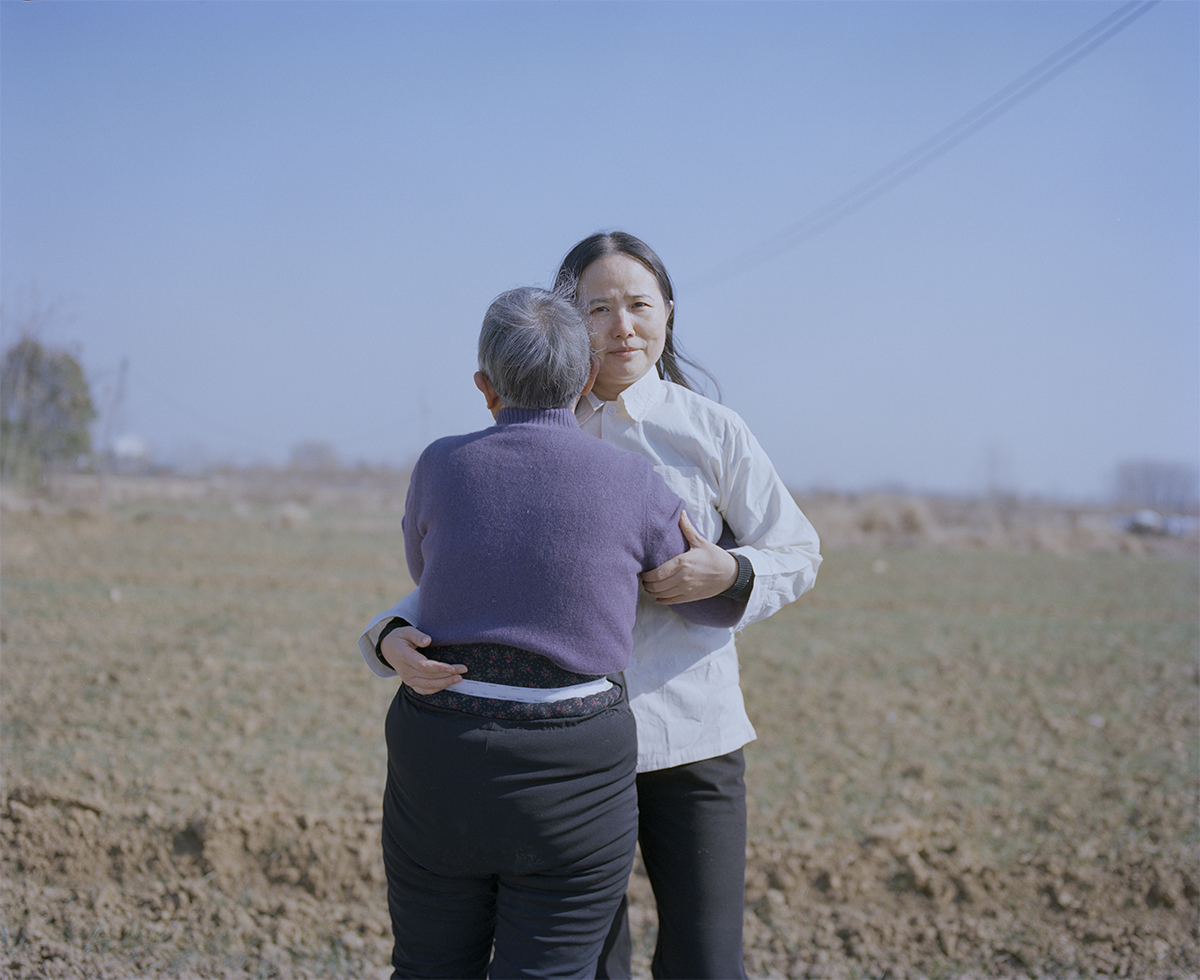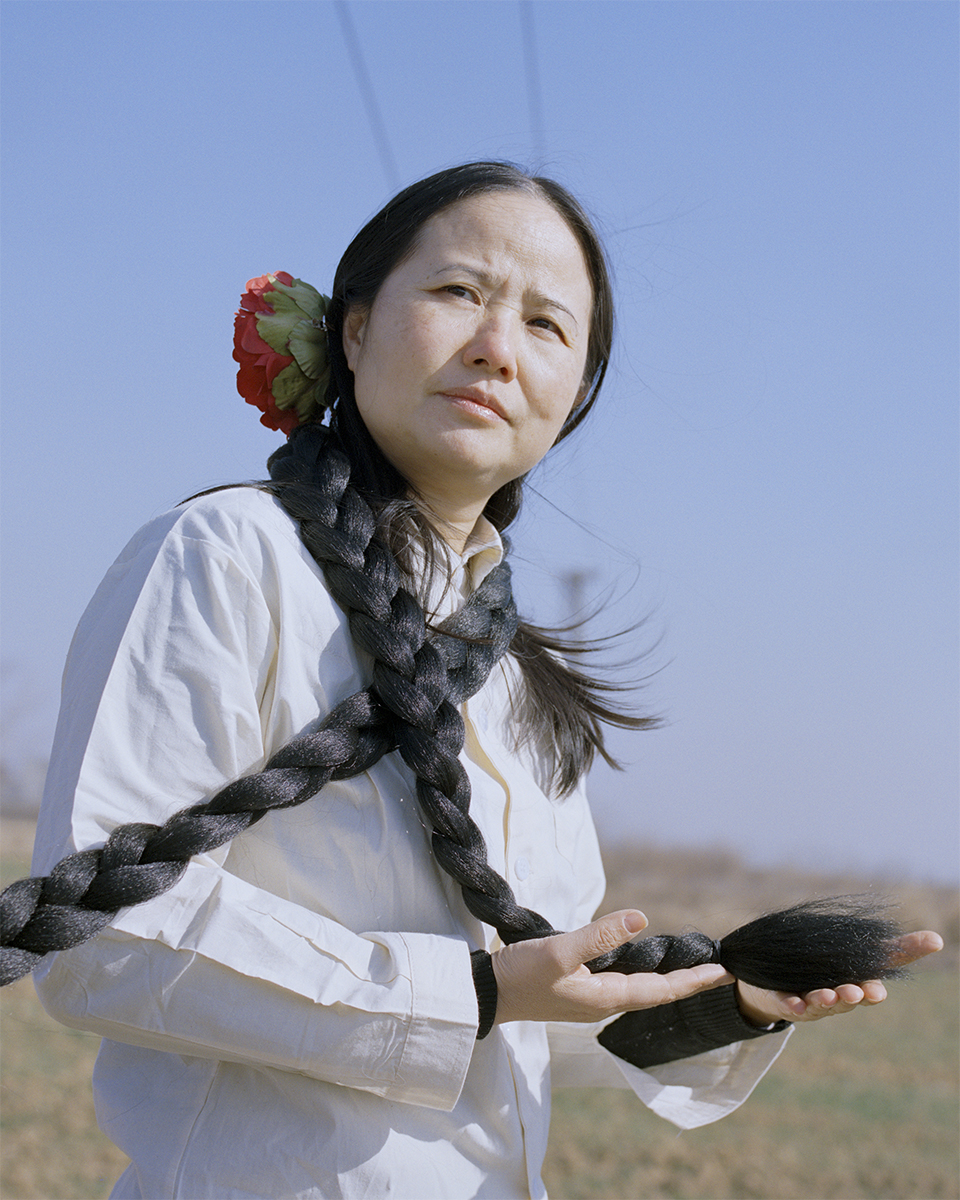Grace, Orchid is a continuation of my exploration of intergenerational relationships and personal memory, focusing on the evolving bond between my mother, 从容 Congrong (“Grace”), and my grandmother, 兰 Lan (“Orchid”). This project examines the shifts in their relationship following the passing of my grandfather—the patriarch of our family—who left behind a household of women that had spent their lives caring for him.
In the summer of 2024, I spent five weeks at home with the women in my family. Compared to the tense atmosphere of my previous visit, their dynamic now felt more natural, as if their shared traumas had, over time, transitioned into shared understanding. The power relations among them had subtly shifted. Within these delicate changes, I sensed a unique emotional flow—a mix of alienation and reconnection.
During my stay, I photographed newly built high-rise buildings on the ruins of our village, captured my grandfather’s last moments in the hospital, and documented funeral customs I had never witnessed before. My emotions were complex—a sense of loss over shared memories, the disappearance of a place I once knew, and the ambiguity of family bonds.
I was reminded of the moment I learned that my grandmother once considered ending my mother’s life. That knowledge changed the way I felt about her, making it difficult to know how to speak to her. On the night my grandfather passed away, while everyone else went to the funeral home, I stayed behind with my grandmother.
I didn’t know how to face this woman who had raised me yet had once contemplated my mother’s death. She had cared for my grandfather through six years of dementia, even cutting her beautiful hair to make caregiving easier. She would always say, “When he dies, I’ll finally have time to go out.” But when that night arrived, she simply sat there, lost in silence. I tried to speak with her, and she showed me a small pouch filled with photos and documents of my grandfather. As I looked through them, I even found my mother’s college ID photo. My grandmother told me, “Your mother is the only one in the family to go to college.” That night brought us closer than ever. For the first time, I saw her as more than a collection of labels—her wrinkled skin, rough hands, warm tears, and even the faint scent of age made her presence intensely tangible.
After I returned to the U.S., I heard that my mother had taken my grandmother on a few trips. Sometimes, when I call my mother, I can hear my grandmother greeting me on the other end of the line. Before my grandfather’s death, they had not spent time alone together in years, and even their interactions had a formal tone. But as my grandmother aged, their roles reversed. She began to depend on my mother.
For Grace, Orchid, I returned to family imagery. I visited my hometown and revisited the remnants of the village and family home—though they are no longer what they once were. I brought the photographs I had taken of the village and the old house, printing them onto fabric to create fragments of shared memory. However, rather than positioning these women solely as victims and attempting to re-empower them through images as I had before, this time, I sought to capture their emotions from a more nuanced perspective. I became interested in how trauma both distances and reconnects them.
Throughout this project, I focus on capturing everyday moments and unintentional interactions, expressing the intimacy and resonance that have developed over the years. Trauma is no longer the sole defining force; it has transformed into a relationship of interdependence, understanding, and compassion. I hope to show how, despite enduring generational oppression, these women find a connection that transcends trauma.
